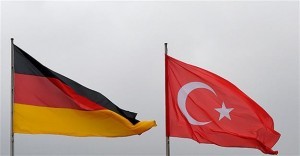Germany has frozen all arms deliveries to Turkey, a newspaper reported on July 21, amid a row between the NATO partners that has sharply worsened since the arrest of several rights activists in Istanbul.
Berlin stepped up its travel advisory for Turkey on July 20 and warned it would review state guarantees for foreign investment there—measures which Ankara labelled “blackmail and threats.”
As part of a sweeping overhaul of bilateral ties, Germany is also “freezing all planned and ongoing arms deliveries to Turkey,” the top-circulation Bild newspaper reported without citing a source.
Chancellor Angela Merkel’s right-hand man, Peter Altmaier, did not confirm or deny the report in a ZDF television interview but warned that “we will at any time consider whether further measures are necessary.”
Relations between Turkey and Germany, home to three million ethnic Turks, have been badly strained, particularly after the failed coup last year.
In the months after the July 2016 coup attempt, Germany already blocked 11 separate arms export shipments to Turkey, including handguns, ammunition or weapons components, according to media reports.
Relations sharply deteriorated after a court in Istanbul ordered six rights activists to remain in custody for allegedly aiding a “terror” group on July 18, with German citizen Peter Steudtner among them.
In the war of words, German Finance Minister Wolfgang Schaeuble compared Turkey with the former communist German Democratic Republic (GDR).
“Turkey is arresting people arbitrarily and not respecting even minimal consular standards. It reminds me of the way it was in the GDR. When you travelled there, you knew if something happens to you, no one can help you,” said Schaeuble.
Altmaier also confirmed that Berlin would urge Brussels to freeze 4.45 billion euros ($5.2 billion) in EU funds theoretically earmarked until the end of 2020 for Turkey, a long-term aspirant for membership to the bloc.
Ask me anything
Explore related questions





